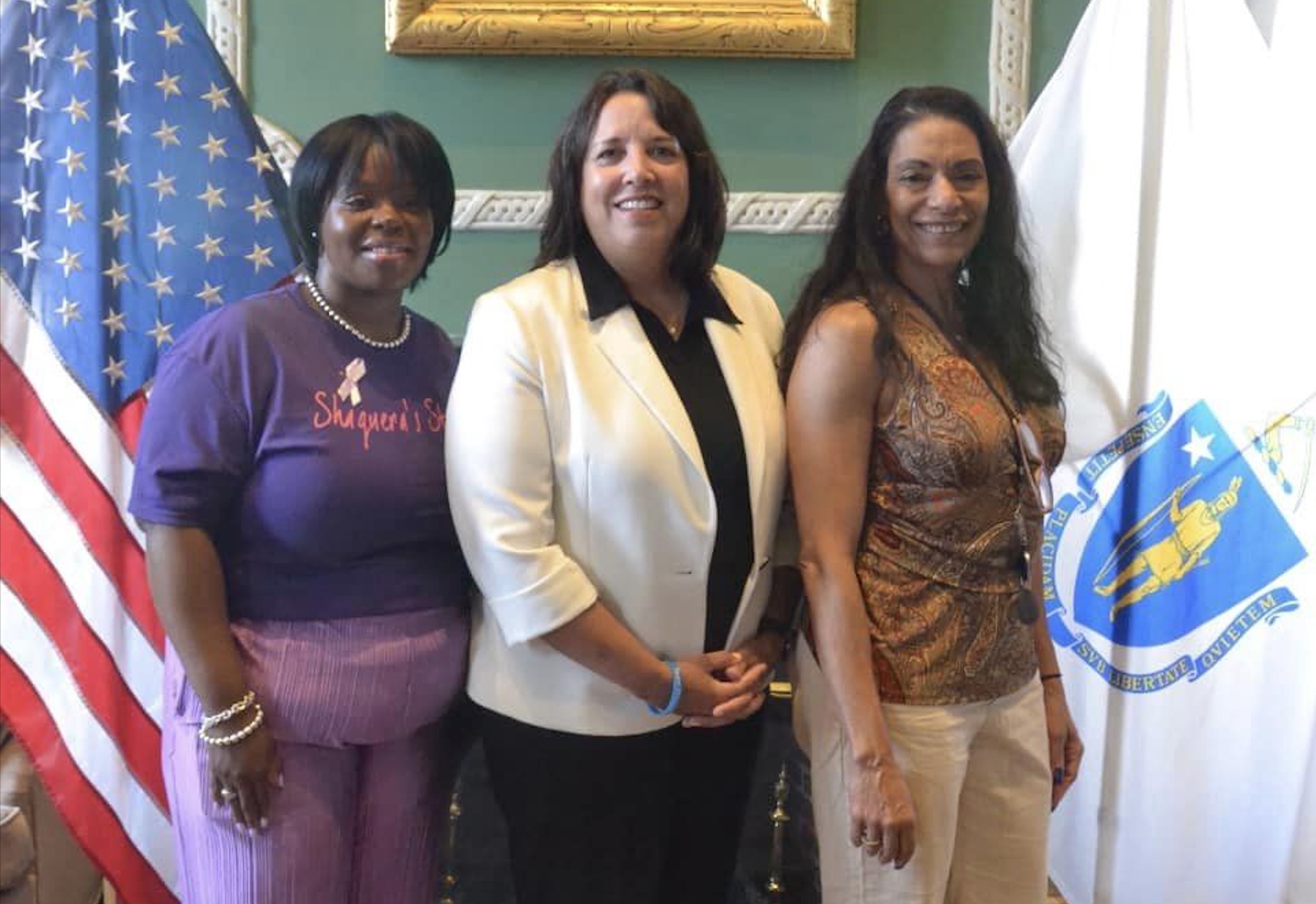Leading Change in Nonprofit Inclusion: Adriana Cordero Raines on Community and Belonging
Adriana Cordero Raines describes community connection as a group of individuals who have a common goal and purpose, come together intentionally, and, despite their differences, decide on something they want to improve or have an impact on.
“Community to me is a feeling… I walk into a Vital Village event and I belong there. So that feeling that this is your tribe. [They are] your people and you can relate to them.”
Although people in positions of power, such as political figures, are important because they help us move initiatives forward, Adriana recognizes the true power that lies with individuals and community members and their lived experiences. And because every individual has different experiences and priorities, when coming together with a common goal, it’s important to “organize, prioritize, and have a strategic structure on how to get there.”
Adriana is an Afro-Latina woman and the founder and CEO of a consultancy practice of 10 years, and she has been affiliated with Vital Village Networks for many years. In December 2023, she received the Unsung Hero Innovation Award for innovative leadership in service to children and families.
Adriana grew up in Jamaica Plain. She has been working with nonprofits for over 25 years, and about a year ago, she decided to focus solely on her consulting firm, which helps nonprofits become more inclusive spaces. With this work, Adriana hopes to increase diversity and remove barriers so that individuals working at nonprofits can learn about different cultures, ethnicities, and ways of serving communities that have been marginalized and historically oppressed.
“I work for nonprofits in different capacities…I come to an organization and I do an evaluation and identify any gaps that may be preventing them from effectively and sustainably serving the communities they need [to serve].”
Meanwhile, Adriana’s work also extends to advocacy and legislative efforts. In our recent conversation, she referenced a powerful quote: “There comes a point where we need to stop just pulling people out of the river. We need to go upstream and find out why they're falling in.” – Desmond Tutu. Adriana believes that not only do we have to attend to the people who need help, but we also need to work toward transforming or dismantling the systems that are keeping them in those situations.

From left to right: Shaquera Robinson (Adriana Cordero’s co-founder at Shaquera's Story Domestic Violence Coaching and Consulting), Lt. Governor Driscoll, Adriana Cordero.
Finding Inspiration
“50 years ago women were not allowed to buy property, or to have a job or a credit card or anything without the husband's permission. That is a big deal. The feminist movement and so many other champions fought for women to be able to enter the workforce, to empower women so that we could also be a part of society.”
For Adriana, finding inspiration comes from acknowledging that there are many people doing good work. She recognizes that doing this type of work can sometimes create frustration and that a system built for oppression is ingrained in us through the media, our upbringing, etc. Therefore, there is a need to be patient with people as we learn and relearn to be better equipped to navigate the impact that our communities hope to see. Adriana is optimistic that we are moving in the right direction if people focus on the power that they have and not wait around for politicians or others, while celebrating the small wins over time.
Importance of Community
Helping and serving the community was part of Adriana’s upbringing as the daughter of an immigrant single mom who was also very politically active. When she began her career over two decades ago, Adriana started as a social worker, connecting with those who were on the ground working directly with marginalized, underserved communities.
“It's a lot of getting to know the community because every community is not the same…”
Across these experiences, learning about what makes people different and what they have in common was always important for Adriana. Realizing that this work couldn’t be done alone led to organizing people, creating coalitions, and finding those who actually do the work and who are in those spaces.
In our conversation, Adriana also brought up ‘trust’ as a crucial ingredient when working with communities. She acknowledges that connecting with people requires trust, and gaining that trust takes time. “It takes time getting to know the culture, and it takes being humble.”
Drawing on her experiences while working at Children's Services of Roxbury, Adriana shares insights on how we can focus on creating solutions instead of focusing on the problem. Even though there are many issues and challenges such as racial disparities, “when you have a good network of other stakeholders that are focused on how to serve these families, how to get these families reunited... [we can] spend less time focusing on what's wrong and more time on building something new.”
Stay Connected
www.nlightenconsultingandcoaching.com

